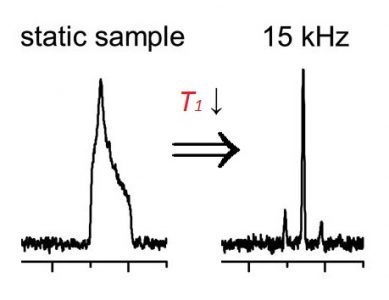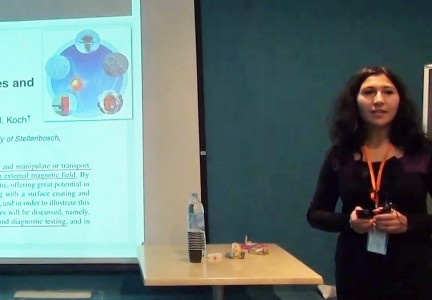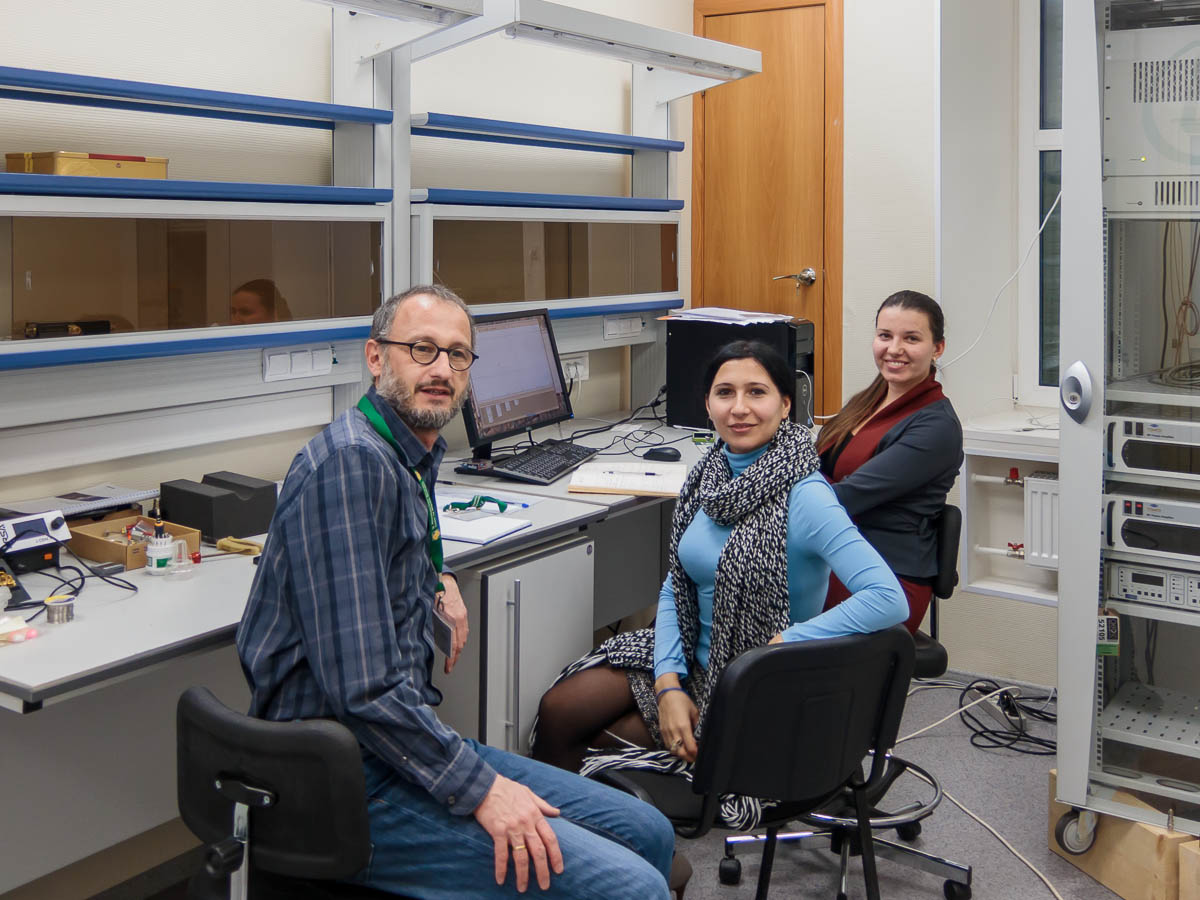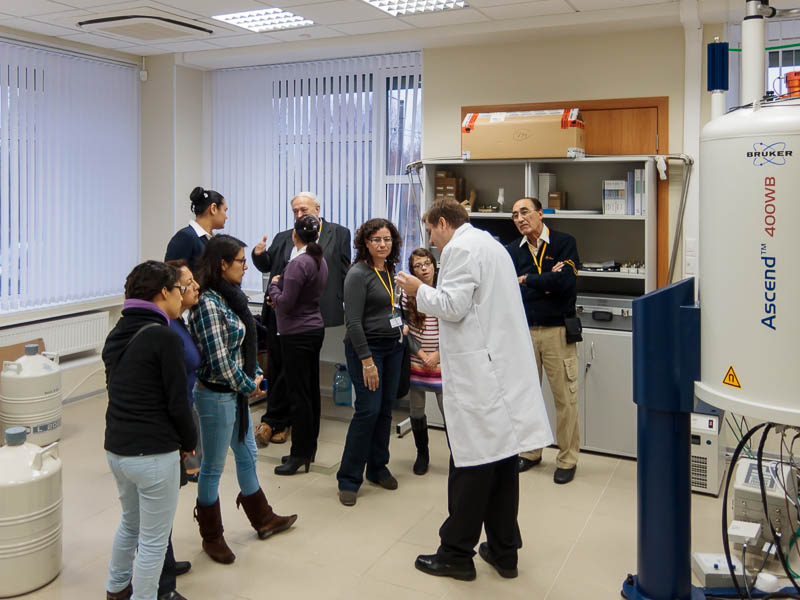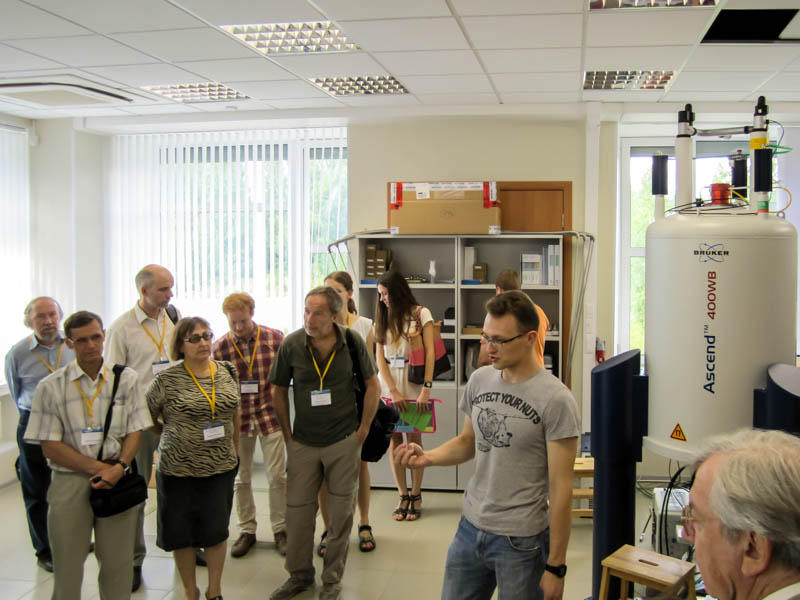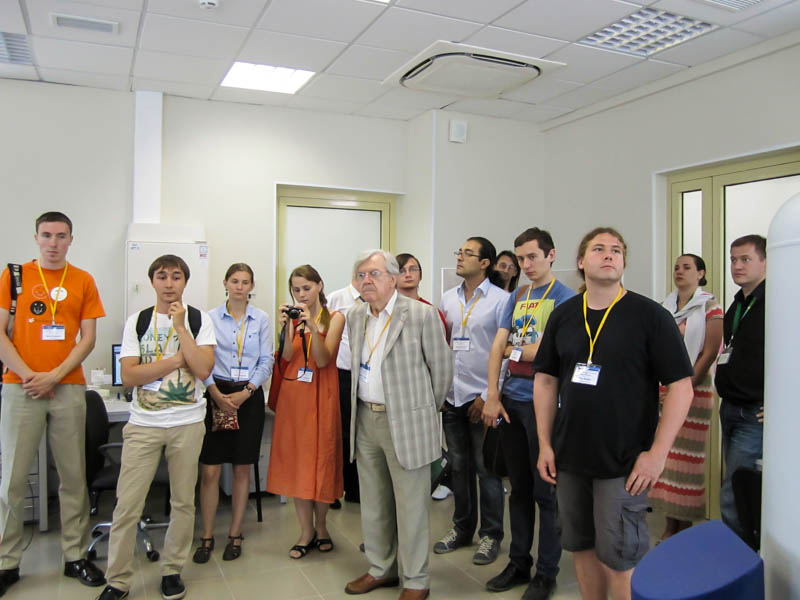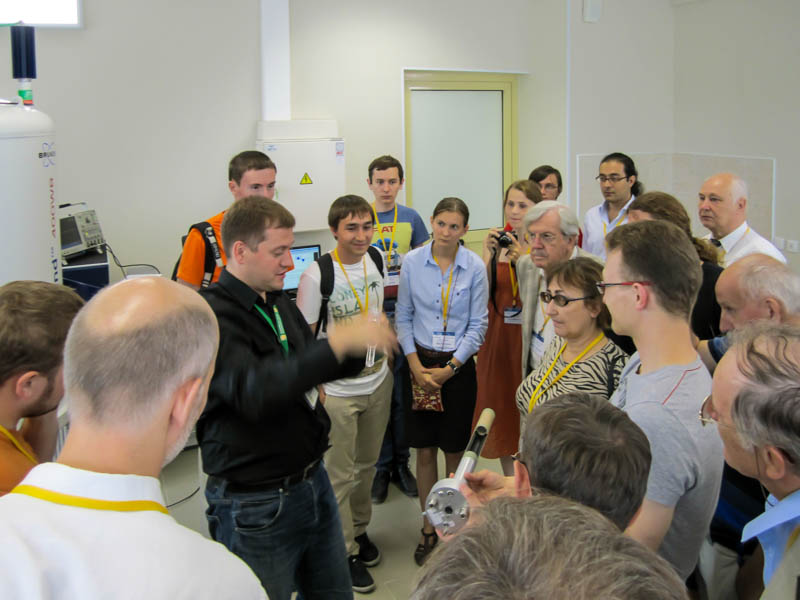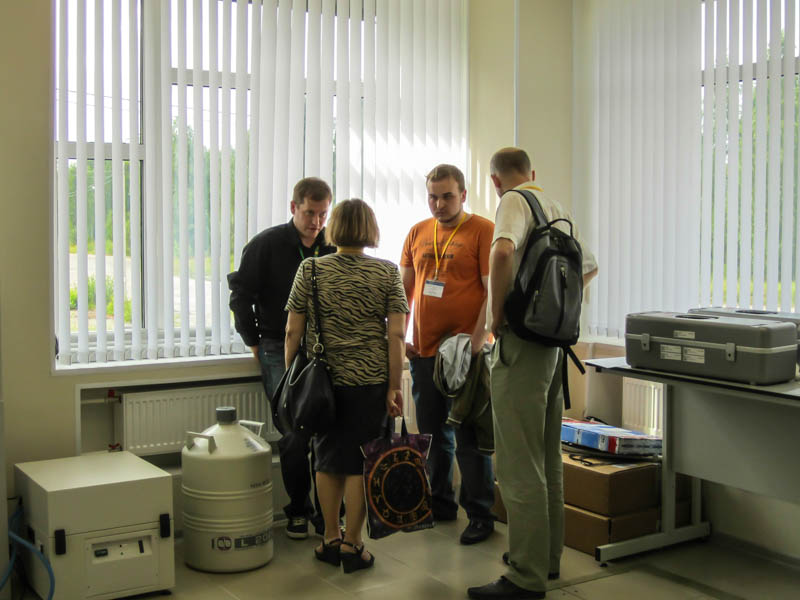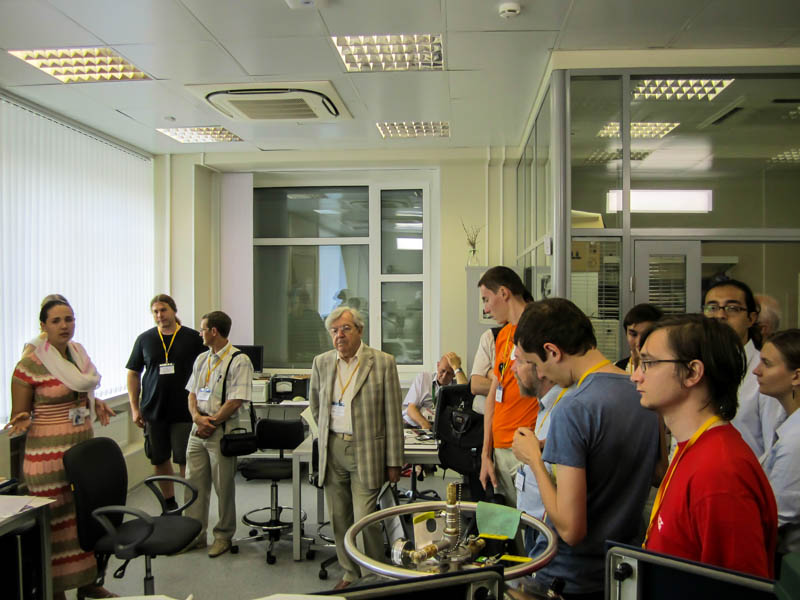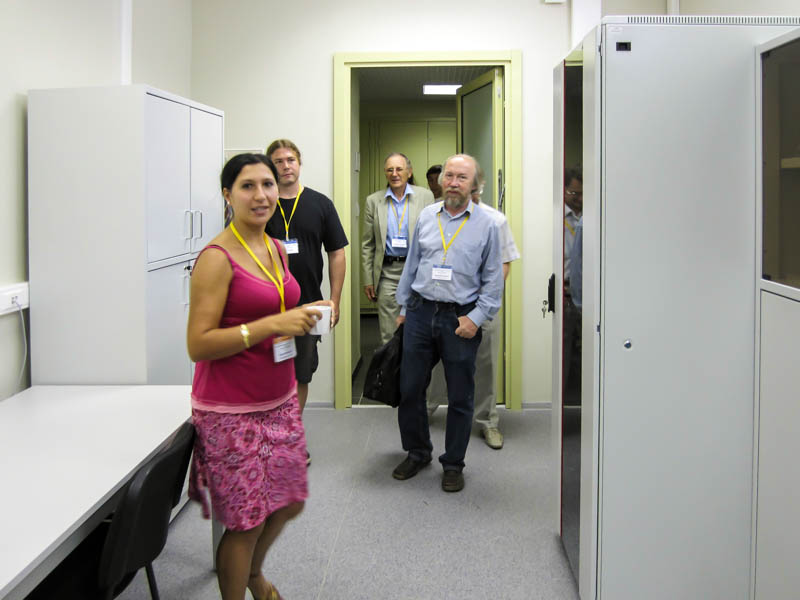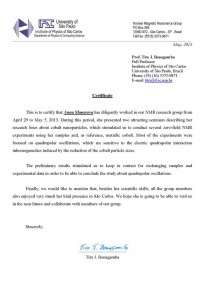A.A. Shmyreva, M. Safdari, I. Furó, S.V. Dvinskikh
“NMR longitudinal relaxation enhancement in metal halides by heteronuclear polarization exchange during magic-angle spinning”
J. Chem. Phys., 2016, 144, 224201
DOI:10.1063/1.4953540
Orders of magnitude decrease of 207Pb and 199Hg NMR longitudinal relaxation times T 1 upon magic-angle-spinning (MAS) are observed and systematically investigated in solid lead and mercury halides MeX2 (Me = Pb, Hg and X = Cl, Br, I). In lead( ii) halides, the most dramatic decrease of T 1 relative to that in a static sample is in PbI2, while it is smaller but still significant in PbBr2, and not detectable in PbCl2. The effect is magnetic-field dependent but independent of the spinning speed in the range 200–15 000 Hz. The observed relaxation enhancement is explained by laboratory-frame heteronuclear polarization exchange due to crossing between energy levels of spin-1/2 metal nuclei and adjacent quadrupolar-spin halogen nuclei. The enhancement effect is also present in lead-containing organometal halide perovskites. Our results demonstrate that in affected samples, it is the relaxation data recorded under non-spinning conditions that characterize the local properties at the metal sites. A practical advantage of fast relaxation at slow MAS is that spectral shapes with orientational chemical shift anisotropy information well retained can be acquired within a shorter experimental time.
